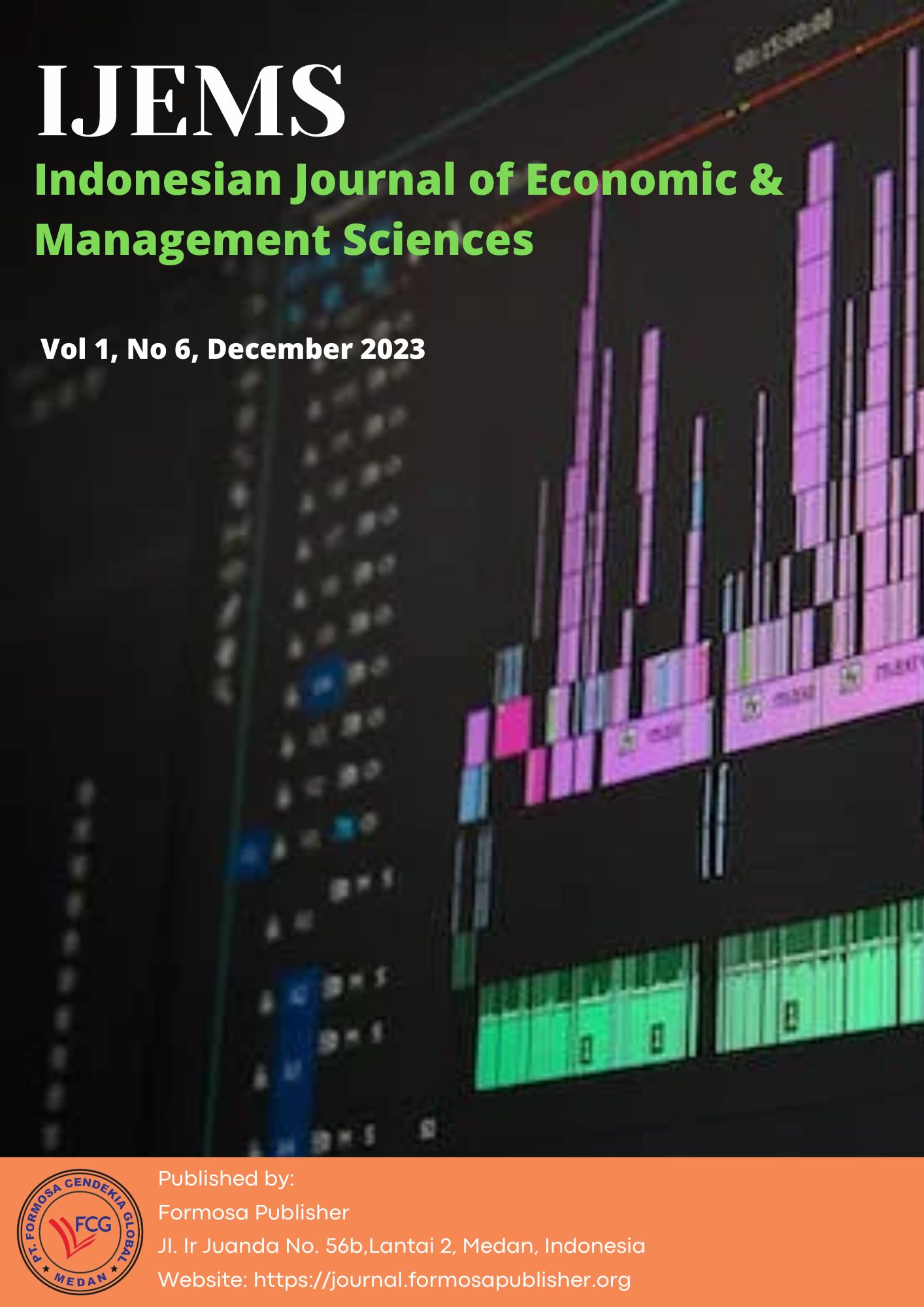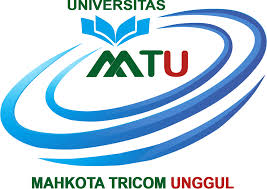The Influence of Intellectual Intelligence, Eional Intelligence and Role Stress on Auditors' Performance Using Spiritual Intelligence and Religiousity as A Moderation of Research in The Riau Province Indonesia Inspectorate
DOI:
https://doi.org/10.55927/ijems.v1i6.7189Keywords:
Intellectual Intelligence, Emotional Intelligence, Role stress, Spiritual Intelligence, Religiosity, Auditor PerformanceAbstract
The research aims to develop a conceptual model of local government auditor performance with intellectual, emotional intelligence, role stress on auditor performance with spiritual intelligence and religiosity as moderation (empirical study at the Riau Province inspectorate). Sample of 123 Inspectorate auditor respondents in Riau Province, Indonesia. SEMwarpPLS software. The results of research on intellectual intelligence, emotional intelligence and role pressure have a positive effect on auditor performance. Meanwhile, the spiritual intelligence moderating variable cannot strengthen intellectual and emotional intelligence on auditor performance and the spiritual intelligence moderating variable can weaken the role of stress on auditor performance. Then religiosity as a moderating variable can influence emotional intelligence and stress can weaken auditor performance. On the other hand, religiosity as moderation cannot strengthen the influence of intellectual intelligence on auditor performance
Downloads
References
Abdillah, W., and J. Hartono. 2014. Partial Least Square (PLS). Yogyakarta: CV. Andi Offset.
Admiration, Journal of Syntax, Behavioral Accounting, Emotional Intelligence, Intellectual Intelligence, and Professional Ethics. 2022. "Auditor, (3) Spiritual Intelligence on Auditor Performance." 3(8).
Albanese, Robert. 1978. Managing: Toward Accountability for Performance. Homewood, Illinois: Richard D. Irwin, Inc.
Anam, Hairul, and Lia Ardillah. 2016. "The Influence of Emotional Intelligence, Intellectual Intelligence, Spiritual Intelligence and Social Intelligence on Accounting Understanding." JST (Journal of Applied Science) 2(1):40–47. doi: 10.32487/jst.v2i1.118.
Arkin, RM, and GM Maruyama. 1979. “Attribution, Affect, and College Exam Performance.” Journal of Educational Psychology.
Augusty, PA, and Jain Mathew. 2020. “Spiritual Intelligence and the Knowledge Society a Systematic Review of Literature to Understand and Examine the Importance of Spiritual Intelligence in a Knowledge Society.” Journal of Critical Reviews 7(19):585–94. doi: 10.31838/jcr.07.19.72.
Awad, Emad A., and Amir Allam. 2015. "A Critique of the Balanced Scorecard as a Performance Measurement Tool Emad A. Awadallah Department of Accounting and Information Systems Assistant Professor of Accounting Faculty of Commerce.” International Journal of Business and Social Science 6(7):91–99.
Ayati, Ni'matul. 2012. "Religiosity, Emotional Intelligence and Teacher Prosocial Behavior." Tabularasa Psychological Journal 7(2):126827.
Besse Wediawati, Rike. nd "Spiritual Intermediationdi - Besse Widyawati-Rike Setiawati.Pdf."
Beykent, University, Outlook Project, and Intra Family. 2015. "The Influence of the emotional and spiritual intelligence of Turkey's Top Managers on the Financial Performance of Their Organizations." (September).
Eagly, A.H., and S. Chaiken. 1975. “An Attribution Analysis of the Effect of Communicator Characteristics on Opinion Change: The Case of Communicator Attractiveness.” Journal of Personality and Social.
Fatemi, AH, R. Pishghadam, and ... 2012. “Attribution Theory and Personality Traits among EFL Learners.” International Journal.
Fikri, Khusnul, Haryadi, Edward, and Rike Setiawati. 2021. “Mediation and Moderation Models on the Effect of Empowering Leadership and Professionalism toward Lecturer Performance.” Quality - Access to Success 22(184):192–202. doi: 10.47750/QAS/22.184.25.
Fornell, Claes, and David F. Larcker. 1981. "Evaluating Structural Equation Models with Unobservable Variables and Measurement Error." Journal of Marketing Research 18(1):39–50. doi: 10.2307/3151312.
Fuentes, Marine Marta Martos. 2017. “Faithfulness Islamic Education; Orientation of Religiosity; Self-Efficacy.” 13:1–14.
Ghozali, Imam. 2014. Structural Equation Modeling, Alternative Method Using Partial Least Square (PLS). Semarang: Diponegoro University Publishing Agency.
Gibson, M. 2008. Human Resource Management. 2nd ed. Jakarta: Erlangga.
Golverdi, Mahdi, and Ardakan University. 2015. "Spiritual Intelligence: Aspects, Components."
Golverdi, Mehdi. 2015. "Spiritual Intelligence: Aspects, Components." (August).
Gray, R. 2005. “Attribution Theory and Second Language Learning: Results and Implications.” Celea Journal.
Hamzah, RB, ARA Aziz, I. Abidin, and ... 2019. "Integration of Spiritual Intelligence in Modern Tools for Creativity and Innovative Thinking Using Theory of Inventive Problem Solving (TRIZ)." International Journal … 1(5):1–9.
Herawati, Efi, Syamsurijal Tan, Tona Aurora Lubis, and M. Syurya Hidayat. 2021. "The Role of Employee Performance Mediation on Organizational Performance." Journal of Regional Financing and Development Perspectives 8(6):585–94. doi: 10.22437/ppd.v8i6.11018.
Jensen, Michael C., Michael C. Jensen, American Economic Review, Professor of Finance, La Business, Center Director, Economic Research, Managerial Research, University of Rochester, George Baker, Gordon Donaldson, Allen Jacobs, Jay Light, Clifford Smith, Wolf Weinhold , and Armen Alchian. 1986. “Free Cash Flow Agency Costs, Free Cash Flow Agency Costs, Compensation Finance Are Positively Associated With Sales Growth (See Murphy, 1985). That." (2).
Kaur, Sukhwinder, Sukhdev Singh, and BS Bhatia. 2016. "Exploring Relationship Among Spiritual Quotient, Feeling of Oneness and Job Satisfaction of Employees: An Empirical Study." International Journal of Human Resources Management (IJHRM) 5(4):1–12.
Koranmx. 2020. “News Tribune Issue.”
Larasati, Dinda, Andreas Andreas, and Rofika Rofika. 2020. "Investigative Audit Techniques, Experience and Professionalism of Auditors in Fraud Disclosure: Spiritual Intelligence as a Moderator." CURRENT: Journal of Current Accounting and Business Studies 1(1):149–68. doi: 10.31258/jc.1.1.150-169.
Lutfi Abdurahman, Nurhuda, and Amir Hidayatulloh. 2020. "Intelligence, Religiosity, Love of Money and Ethical Perceptions of Accounting Students at Ahmad Dahlan University, Yogyakarta." Journal of Accounting Applications 4(2):211–25. doi: 10.29303/jaa.v4i2.75.
Lyons, Joseph B., and Tamera R. Schneider. 2005. “The Influence of Emotional Intelligence on Performance.” Personality and Individual Differences 39(4):693–703. doi: 10.1016/j.paid.2005.02.018.
Mahmood, Arsyad, Mohd Anuar Arsyad, and Adeel Ahmed. 2015. "Establishing the Relationship Between Intelligence, Emotional and Spiritual Intelligence on Employee Performance in the Pakistani Government Sector Mediterranean Journal of Social Sciences." 2117(Upadhyay):553–60.
Mas'ulah, Siti, Hidayatul Khusnah, and Endah Tri Wahyuningtyas. 2020. "Spiritual Intelligence Mitigates the Negative Impact of Role Stress on Internal Auditor Performance." Journal of Integrated Accounting Research 13(1):122. doi: 10.35448/jrat.v13i1.7954.
Mufidah, M., A. Amir, A. Hizazi, 2022. "Analysis of Balanced Scorecard in Non-Profit Organizations Towards Accountability in the Covid Pandemic." International Journal of 3(5):710–18.
Nasrullah Dalli, Nur Asni, Dwi Febrian Arba Suaib-. 2018. "The Influence of Intellectual, Emotional, and Spiritual Intelligence and Locus of Control on Acceptance of Dysfunctional Audit Behavior (Esq)." Journal of Accounting and Finance II: 86–96.
Nisya, Lidya sayidatun. 2012. "Lidya Sayidatun Nisya' 1 PGRI Nusantara University Kediri Diah Sofiah 2 University 17 August 1945 Surabaya." Journal of Psychology 7(2):562–84.
Pasek, Nyoman Suadnyana. 2017. "The Influence of Intellectual Intelligence on Accounting Understanding with Emotional Intelligence and Spiritual Intelligence as Moderating Variables." Scientific Journal of Accounting 1(1):62–76. doi: 10.23887/jia.v1i1.9983.
Per/05/M.PAN/03/2008. 2008. "Minister of State for the Empowerment of the State Apparatus Regarding the Empowerment of the State Apparatus."
RI Minister of Trade Regulation No. 48. 2021. RI Minister of Trade Regulation No. 48.
Pratiwi, Ni Luh Yuni, and I. Ketut Suryanawa. 2020. "The Influence of Intellectual Intelligence, Emotional Intelligence, Competency and Work Environment on Auditor Performance." E-Journal of Accounting 30(7):1738. doi: 10.24843/eja.2020.v30.i07.p10.
Prayogi, Gusti Dian, and Erina Sudaryati. 2019. "Government Internal Control System (SPIP) as an Integrated System that is BAJ (Behavioral Accounting Journal). The element of the Government Internal Control System according to Government Regulation Number 60 of 2008 is the Control Environment." Lingk.” Behavioral Accounting Journal) 2(1):54–70.
Putra, Kadek Agus Santika, and Made Yenni Latrini. 2016. "The Influence of Intellectual Intelligence, Emotional Intelligence, Spiritual Intelligence, Organizational Commitment on Auditor Performance." Udayana University Accounting E-Journal 17.2:1168–95.
Rae, Arron. 2018. “Emotional Intelligence, Self-Efficacy, And Turnover : Evidence From Service Employees in China*.” (April):79–100.
Rahmah Sari, Nur et al. 2018. "The Influence of Role Stress and Emotional Intelligence on Auditor Performance with Psychological Well-Being Aspects as Moderating." Civilization Accounting Scientific Journal IV(1):49–69.
Rani, Dewi Lingga, Emrinaldi Nur, and Azwir Nasir. 2021. "Factors Affecting Fraud Prevention Using the Performance Accountability System of Government Agencies As an Intervening Variable (Study on Opd of the Riau Provincial Government)." Bilancia: Scientific Journal of Accounting 5(1):71–86.
Salleh, Muhammad Syukri. 2012a. "Religiosity in Development: A Theoretical Construct of an Islamic-Based Development." International Journal of Humanities and Social Science 2(14):266–74.
Sarkar, Ayatakshee, and Naval Garg. 2020. “'Peaceful Workplace' Only a Myth?: Examining the Mediating Role of Psychological Capital on Spirituality and Nonviolence Behavior at the Workplace.” International Journal of Conflict Management 31(5):709–28. doi: 10.1108/IJCMA-11-2019-0217.
Sawatzky, Rick, Pamela A. Ratner, A. Meta-analysis of the Relationship Between, Spirituality and, and Quality of Life. 2005. "Considering a Person's Perception of Spirituality in Providing Health Services." This Tendency Is Related To The Relationship Between Spirituality And Outcomes That Identify Determining Ya Quotient Attributes And Related Conceptualizations Such As Case.” 153–88.
Seran, Maria, and Eliada Herwiyanti. 2019. "Theoretical Review of Internal Auditors: Professional Ethics, Intellectual Intelligence, and Emotional Intelligence." Journal of Accounting 13(1):54–71. doi: 10.25170/jara.v13i1.488.
Setiawan, Yuliana Grece, and Made Yenni Latrini. 2017. "The Influence of Intellectual Intelligence, Emotional Intelligence, Spiritual Intelligence, Independence and Organizational Commitment on Auditor Performance." E-Journal of Accounting 2017(1):814–44.
Sholihin, Mahfud, and Dwi Ratmono. 2021. SEM-PLS Analysis With WarpPLS 7.0. Yogyakarta: CV. Andi Offset.
Smith, Kenneth J., David J. Emerson, and Charles R. Boster. 2018. "An Examination of Reduced Audit Quality Practices within the Role Stress Model." Managerial Auditing Journal 33(8–9):736–59. doi: 10.1108/MAJ-07-2017-1611.
Smulowitz, Stephen, Manuel Becerra, and Margarita Mayo. 2019. “Racial Diversity and Its Asymmetry within and across Hierarchical Levels: The Effects on Financial Performance.” Human Relations 72(10):1671–96. doi: 10.1177/0018726718812602.
Solimun. 2017. Strengthening Confirmatory Research in Structural Equation Modeling Using the WarpPLS Approach. Laboratory. Poor.
Tanzeh, Ahmad. 2011. Practical Research Methodology. Yogyakarta: Terrace.
Tianingsih, P., S. Rustiana, and H. Sarwoko. 2022. “JEMBA: Journal of Development Economics, Management and Business, Accounting Volume 2. No. 1 (March 2022) / e-Journal.Upr.Ac.Id.” 2(1):40–52.
Villagonzalo, Regine R. 2013. “Intelligence Quotient, Emotional Quotient, Spiritual Quotient, and Adversity Quotient® and the Academic Performance of Students.” Journal of Chemical Information and Modeling 53(9):1689–99. doi: 10.1017/CBO9781107415324.004.
Well, Psychological, Moderating Variables, Oktri Supyati, and Jaisyul Usrah. 2023. "The Influence of Locus of Control, Role Stress and Audit Skills on Auditor Performance with." 7:13–34.
Wen, Cheng. 2017.Analysis of the Influence of Intellectual, Emotional and Spiritual Intelligence on Employee Performance with Work Motivation as a Moderating Variable.51–67.
Downloads
Published
How to Cite
Issue
Section
License
Copyright (c) 2023 Badewin, Amri Amir, Sri Rahayu, Rike Setiawati

This work is licensed under a Creative Commons Attribution 4.0 International License.








